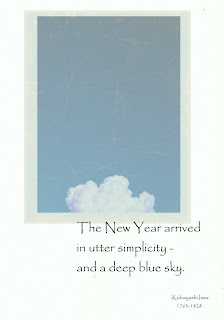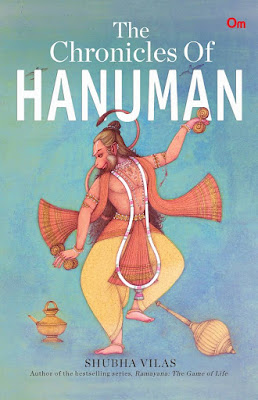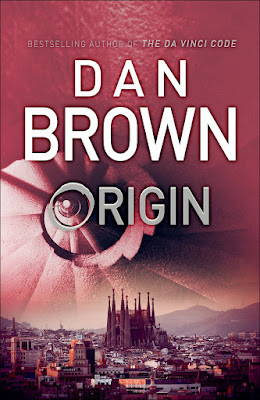A simple effort to share the flow of thoughts and stream of emotions that well up in my mind
Friday, December 28, 2018
May You Find Love!
Saturday, December 15, 2018
Book Review - The Theft of India, Roy Moxham
The amount of corruption, treachery, selfishness, petty egos, deceit and differences that handed over 'India' to the colonial powers is sure to make your blood boil. Short. Succinct. To the point. A good read.
Wednesday, September 5, 2018
Book Review – DareDreamers, Kartik Sharma & Ravi ‘Nirmal’ Sharma
Whenever I remember that teacher, I remember his statement as well and use it as a touchstone to check the events, thoughts and books prevailing in my life at that moment. This book by promising authors, the father-son duo of Sharmas, stands testament to that increasingly truthful statement of my old teacher.
Rasiq, a man ever torn between the rights and wrongs of life, like Yudhishtra, Halka, a mighty man of supreme physical prowess, resembling Bhima, Arjun, a skilled sharp-shooter like his namesake from the Mahabharata, Nick and Vyom, the intelligent innovator and a master physician, like the twins Nakul and Sahadev make the pack here. Accompanying them are Natasha, a brave woman like Draupati, sharing a platonic, professional relationship with all but one member of this pack, and Aslam, piloting them to their destiny, like Lord Krishna, literally.
Rasiq has an enviable life, attaining the pinnacle of academic success with degrees from IIT and IIM. However, the staleness of a high-on-pay-but-low-on-everything-else corporate life pushes him into emotional abyss. Rasiq quits his job and finds his destiny by forming a start-up that specializes in rescuing accident victims. Just as they start tasting success and feeling good about life, a wicked force starts shaking the ground beneath their feet. Were they able to overcome that evil force and grow their enterprising enterprise? Was the evil vanquished? Did Righteousness indeed free itself from the clenches of Evil? Read this book to find out.
This is the second book by these authors that I have been given an opportunity to read and review. Having had a couple of not-so-inspiring experiences reviewing the works of first-time authors, I gently refused when Mr. Ravi Sharma offered me a copy of their first book to review. Convinced by his gentle approach and his assurance that I could share a candid review, I read through their first work ‘The Quest of the Sparrows’. Built around a unique plot, peppered with thoughts on spirituality and purpose of human life, it turned out to be a truly enjoyable read. So, when Mr. Ravi Sharma offered a free-copy this time, I grabbed the opportunity gladly, hoping for something different. And, the authors didn’t deceive.
The plot is unique, the style is fun, the overall execution is commendable. Though there are a couple of negatives, like the added dash of sleaze in the first part of the book and the occasional spelling mistake one finds here and there, the dash of humor and presence of many inspiring thoughts make this book a smooth read overall. A real page-turner that Mr. Sharmaji and his son can both be proud of!
Thursday, August 30, 2018
Book Review – Cosmos, Carl Sagan
While science may not have solved all our queries yet - and raises as many demons as it lays to rest - it makes genuine, continuous efforts to arrive at the Truth. Armed with science, we humans have started exploring all around us. From the microcosmic wonders of atoms to the mega marvels of Universe, science has lifted many veils and shown us things beyond our limited understanding. Scientists like Carl Sagan have played an important role in lifting those veils, not only by their direct contribution to the sciences, but also through their ability to communicate such esoteric wisdom to the masses, to laymen that are keen on understanding their surroundings but limited in their ability to do so.
Books like ‘The Origin of Species’ remain special, not just because they tell us about groundbreaking discoveries, but also due to their telling it in a language that we, the laypersons, can understand. While ‘Cosmos’ by Carl Sagan may not be as earth-shattering as ‘The Origin of Species’, it is special by its own right. Written nearly four decades ago, co-developed with a television series of the same name, this book was produced with the idea of popularizing the sciences, especially astronomy, among the masses. To the uninitiated but curious mind, this book is the ideal beginning into the wonderous realms of the cosmos. This book is to the budding astronomer what the alphabets and the arithmetic are to the young child.
From the ancient budding of scientific thoughts at the Ionian islands to the then-latest launching of space missions like Voyager-2, Carl Sagan takes each stage in the evolution of science as we know it, elaborates on the circumstances prevailing at those times, enumerates important contributions by various scientists. The real fun is his doing all this in an interesting, pacey manner, without letting the reader feel bored even once. After helping us navigate the unimaginably vast expanse of our Universe and showing us the wonders of our solar system, stars, planets, galaxies and the bleak black holes along the way, Sagan ends the book with philosophical musings on the future of mankind on this nuclear era and the possibilities of our encountering extra-terrestrial intelligence.
This is not just a book on astronomy. Burgeoning with interesting details on history, evolution, atomic science and mathematics, this is one complete book that every mind passionate about learning must possess.
Tuesday, August 21, 2018
Book Review - The Bachelor of Arts, R.K. Narayan
 Unlike most of the contemporary
Indian authors, many of whose works I nearly ended up flinging through the
window, the Indian masters of yore had a sense of simplicity and sincerity in their
writings. If I say that RKN is chief among them, not many would contest my
point.
Unlike most of the contemporary
Indian authors, many of whose works I nearly ended up flinging through the
window, the Indian masters of yore had a sense of simplicity and sincerity in their
writings. If I say that RKN is chief among them, not many would contest my
point.Wednesday, August 8, 2018
Let Bygones Be Bygones
I have no respect for even a single politician of this generation. I have no affinity to any of the casteist, religious, societal ideologies either. All I trust is this - when a life ends, when death occurs, all the goodness and evil associated with that life come to end. The soul departs leaving behind all the glories and condemnations. We, as decent human beings and fellow souls, can only pay respect to it and pray for its salvation.
But the things that I see in social media are absolutely horrifying. And, repulsive to say the least. Never has one seen the animals celebrating the death of one of their own. But here, we civilized humans are busy taking side, for and against Karunanidhi, reviling one another in words soaked in filth and acid, laying bare all the religious, casteist muck dumped inside our minds.
Holy or wicked, let his Karma deal with him. This is not the moment to don the holy garb and judge him. There is no pride in attacking someone when he cannot defend himself. Similarly there is no goodess in reviling someone at one's death. If you can, do pray for the soul. If not, just go about your tasks, ignoring the death. Taking to social media, throwing sickly words about his death or hurling dirty abuses at unseen, unknown people belonging to other ideologies/religions/castes, just because they eat, pray, think, sleep or shit in a way different from yours is to only prove how lowly a creature we humans are.
Let peace prevail!
Thursday, July 26, 2018
Life & Limitless Perspectives
A couple of weekends ago, on a late summer Saturday afternoon laced with languor, I had accompanied my spouse to a furniture exhibition. After going through the stalls, we decided to have a bite at the food-court outside. As we sat at our table, digging into the dishes in front of us, our eyes fell on a janitor cleaning the tables nearby – an elderly woman with shriveled skin, lean physique but straight posture, her silvery hair tied into a neat bun, not a strand out of place. The style of her sari and the fading tattoos on her forearms made it clear that her origins lay in the land of lovely Telugu. The wrinkles on her hands and cheeks would put a fractal artist to shame, with skin-folds that crisscrossed into countless patterns. Here was another human being, performing a menial job, but her mien and dignity second to none there.
My wife also noticed the lady and, with astonishment in her eyes, mentioned how fortunate we both are, in the sense that we are both young and have our organs, especially our skins, intact. She expressed pity for the elderly woman’s having to work at this advanced age and remarked that such a state should never befall us.
Cleaning the floors and tables, collecting the disposable-cups and paper-plates carelessly thrown around by ‘the rich and the educated’, the elderly janitor came near our table. From the corner of my eyes, I could see that she didn’t move ahead but stood next to our table, mumbling something. Being a run-of-the-mill big-city-dweller, I assumed that the elderly woman was asking us for money. Calculating in my mind for the spare change in my wallet, I turned to face that lady, only to realize that she wasn’t even looking at us. Her gaze was on a good-looking middle-aged woman, sitting on a wheel-chair pushed by a younger woman. It was to make way for this woman on wheel-chair that our janitor lady stood aside, standing next to our table.
I was feeling a sense of guilt for my condescending assumption. After the woman in wheelchair and her companion moved ahead, the elderly janitor shook her head and, turning towards me, remarked ‘What a pitiable condition! Such a state should never befall us. It’s our good karma that we have our organs intact and don’t need someone’s help to move around’. Saying that with an innocent look, she went on collecting garbage from the floors and wiping clean the tables.
Is Life indeed all about perspectives? What do you think?
Wednesday, July 18, 2018
Book Review – Doing Business Without Your Money, Dr. Suresh Haware
A friend gifted me this book, stating that the author is one of the renowned businessmen in Maharashtra and an inspiring figure for aspiring entrepreneurs. Infected by her enthusiasm, I picked the book, hoping to get some long-awaited inspiration to start something on my own. But, alas, what a disappointment this book has given me!
Dr. Suresh Haware, a nuclear scientist-turned-builder-turned-politician, has attempted to share his experience and wisdom on entrepreneurship with the budding businessmen out there. While the motive is very much commendable, the style of expression falls far behind. By reading the title, one is bound to believe that this book is about the various ways of raising capital for starting one’s business. However, except for the dabbling at the first few pages, the author moves on to an ambitious attempt at teaching every other aspect of running a business, which becomes the downfall for this book.
Instead of dwelling on specific guidance, the book contains generic advice that gets repeated in every chapter. With incoherent, repetitious writing style, shoddy spelling (’Procter & Gambel’), glaring grammatical mistakes (‘towing the line’), glaring errors in facts (the name of the disgraced Satyam Computer Services founder is mentioned as ‘Mahalingam Raju’ instead of Ramalingam Raju), this book makes reading quite a toil.
While the intention of the author – to inspire youngsters to become ‘businessmen’ and create wealth for the nation - deserves praise for sure, his book doesn’t. Except for being good in patches, very small ones at that, the book doesn’t carry much that one cannot learn through basic common sense and observation.
Buy this book with someone else’s money, if you don’t want to waste yours.
Wednesday, July 4, 2018
Book Review - The Chronicles of Hanuman, Shubha Vilas
Hanuman, the glorious 'Monkey God' of the Hindu pantheon, needs no introduction and almost every worthy Hindu - or one who has read Ramayan - is aware of his contribution and part in Rama's rescue of Sita from the demonic Ravan. This book presents Hanuman's life story in lovely little tales that stoke one's interest for more. Right from Hanuman's birth and childhood to his post-Ramayan 'existence' are all presented here in a manner that will make reading such a pleasurable experience.
Of course, there is nothing much new except the already widely circulated stories about Hanuman, but that never reduces their charm. Also, the 'morals' at the end of every tale that the author tries to derive, sound so mundane and forced. But the tales are what one picks this book for and the book does justice to it. Bonus would be the little guide in the end about the famous Hanuman temples in the country and also the transcription/translation of Hanuman Chalisa.
Read this, keeping aside all your grown-up questions and logic and it will be one pleasant, lovely read. Recommended!
Thursday, April 12, 2018
Book Review – Holy Cancer, Amit Vaidya
When a friend of mine, whose family member is ailing from cancer, gave me this book to read and review, I was hopeful of reading through some inspiring literature that could help me spread positive vibes around. But the word ‘positive’ is in no way related to this book. If anything, this book is at best a pity-party and worthless whining. At least till the 100-odd pages that I could toil through, before dumping the book once and for all.
Amit Vaidya, whose memoir this book is, was a well-settled NRI who went through the traumatic experience of losing his parents within a couple of years, both to serious ailments. He himself was diagnosed with cancer and was predicted with only few months’ survival period. Tired of loneliness and determined to explore the alternative medicines, Amit arrived in India, taking the help of family-friends and relatives. However, except for a few, all his relatives showed an ‘indifferent’ and ‘uncaring’ attitude towards him. Managing to garner the support somehow, he arrived at a hospital in Gujarat that is said to offer a cure for cancer through natural methods and cow-products. And, that is how far I could get through in the book, before losing patience completely and throwing the book away.
The author states once that he does not like self-pity, but the pages all reek of it. Here is a guy, who wants the whole world to care for him and pamper him, without even giving a moment’s thought as to what it entails to support a terminally-ill patient, both emotionally and financially. Here is a guy who went and settled abroad, trying to make his life there but having had his dreams all cut short due to illness, returning home to the cousins and aunts that he didn’t take much time to interact with prior to his parents’ demise, now expecting all those people – that he didn’t care much about earlier - to care for him and help him heal.
Before you wear a holy garb and cast a stone at those ‘wicked relatives’, consider the following - a now-distanced-once-close relative of yours suddenly arrives at your home, seemingly in good health but claiming to be ailing from cancer, seeks the intense emotional care and monetary support that the treatment for diseases like cancer demand, but never ever shares much details about his ailment with you. Will you really be the good Samaritan that you would expect Amit’s relatives to be?
In this age and world, going through the day-to-day life in the routine manner is by itself taxing and demanding. Add to it the demands of caring for a relative that suddenly pops out of nowhere and asks to be cared for in his ‘final days’ – recipe enough to cause consternation in anybody’s mind. Many of his demands and complaints against his relatives, while he himself seems to be unaware of the plans in his mind, sound as sheer hypocrisy, especially since he had never been much of a part in their lives whom he bitterly speaks about for not caring for him.
This book is – at least till whatever page I could put myself through – a show of vainglorious hypocrisy soaked in self-pity. If you want something better and truly inspiring, I would recommend ‘When Breath Becomes Air’.
This book could very well have been named as ‘Holy Shit’, because it is sheer crap that sounds holier-than-thou. Inspiring is an adjective that I would never associate with this book!
Saturday, March 10, 2018
Book Review – Origin, Dan Brown
Routine, predictable and sluggish, this book reminds me of a work by Shakespeare – Much Ado About Nothing!
Happy New Year 2024!
As the first Sun of 2024 went back home, I was busy preparing my new diary and journal, packing off the old ones to their crammed space insi...

-
There are many types of authors. Some of them, like the great Kahlil Gibran, teach us the basic truths of life with great eloquence. Some ...
-
One of the resolutions that I had taken for this year was to improve my reading habits and expand the range of topics and authors. Benga...
-
No one watching a beautiful movie like 'Cast Away' can miss out on these three life lessons. 1. Love isn't about those r...










